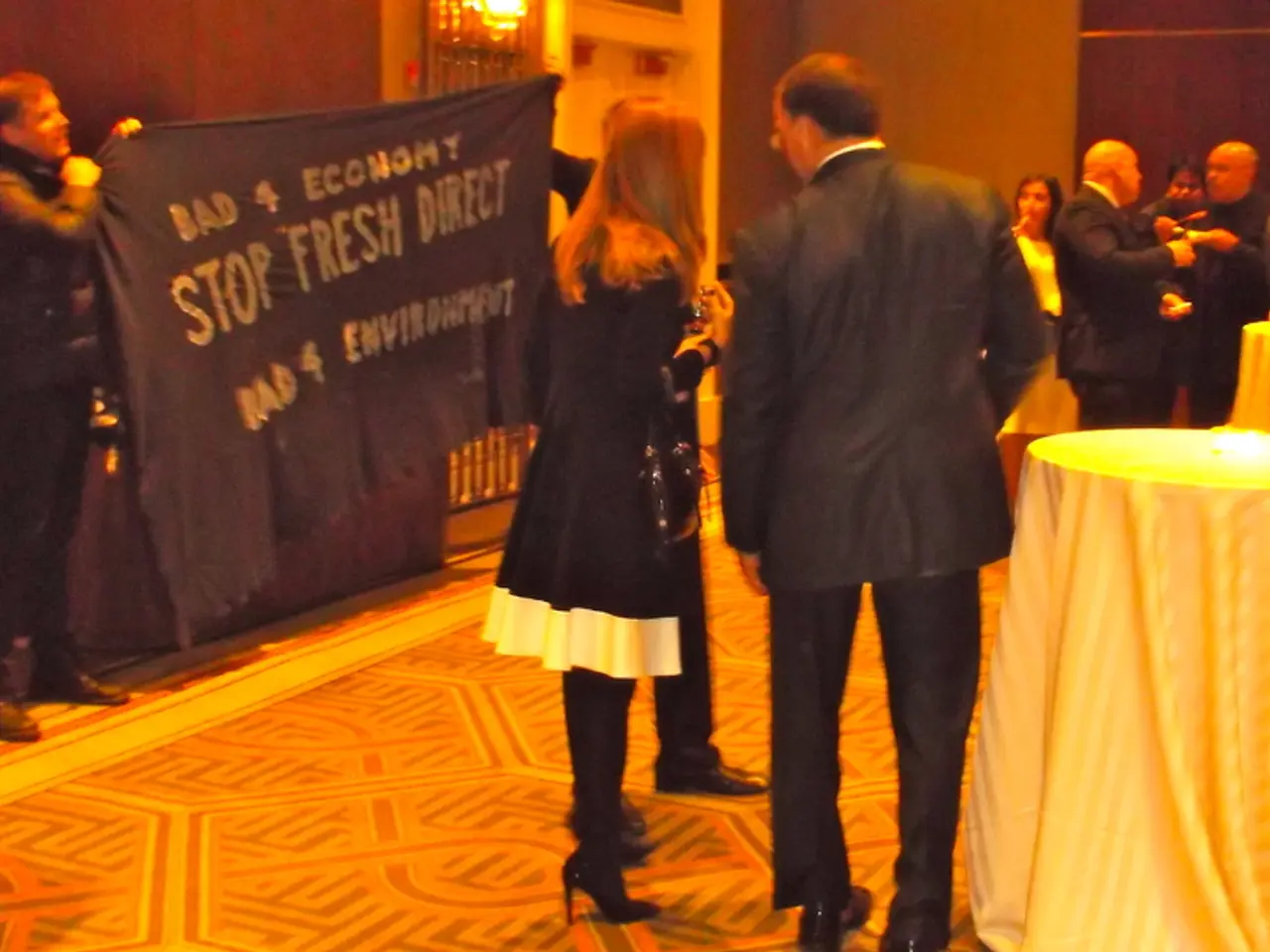Stuck in Limbo: The Battle of Stranded Afghans Against the Federal Government
"A model to misguide: Guiding the Astray"
Imagine being promised a new lease on life, only to be left hanging in the balance. That's the reality for over 2400 Afghan men and women who are currently stranded in Pakistan due to the German federal government's reluctance to honor its resettlement promises. These individuals were part of a program initiated by the previous government to protect those under threat in Afghanistan before the Taliban took over. However, the new federal government has put a stop to all resettlement programs, leaving these individuals at risk of deportation back to the very danger they were trying to escape.
Tilmann Röder, a lawyer and head of NGO Just Peace, is one of the key figures in the fight to secure visas for these stranded individuals. He is part of a group suing the federal government on behalf of some of the affected Afghans. In an interview with ntv.de, Röder shed light on the situation and explained why he believes the federal government's actions are politically motivated.
ntv.de: So, how do these lawsuits work exactly?
Tilmann Röder: These lawsuits aim to secure visas for those in dire need of protection whose departure to Germany is being hindered. They have all completed the steps of the federal resettlement program. The first plaintiff, whose lawsuit was filed four weeks ago by lawyer Matthias Lehnert, is a scientist and writer from Afghanistan. She has a history of serving in prominent state positions, actively advocating for democracy, and has stayed in Germany for research purposes. As a politically active woman, she is at high risk from the Taliban. This case is a clear example of the federal government needing to honor its promises. We firmly believe that the courts will see it the same way.
Politics Stuck in Limbo: Lawsuits amidst Germany's Resettlement Freeze
The federal resettlement program was a response by the previous traffic light government to the Taliban's takeover in 2021. The program aimed to enable legal migration for particularly endangered people, without risky flight or centralized control. Röder played a significant role as the head of case processing in the coordination office of civil society in the federal resettlement program. His role was to select and review particularly threatened Afghan women and men for resettlement.
Who exactly are these people?
The federal resettlement program targeted people from civil society who had contributed to strengthening democracy, the rule of law, freedom rights, and human rights in Afghanistan, as well as vulnerably position individuals. This included women and members of the LGBTQIA+ community. Out of the approximately 2400 stranded Afghan individuals in Pakistan, about half come from the federal resettlement program. The remaining individuals come from local forces procedures, the so-called human rights list, or the bridging program. People from the federal resettlement program have stronger legal protection against the revocation of their residence permit compared to those from the other programs.
Politics German Government under Fire over Resettlement Program Cancellation
Nevertheless, the federal government insists on reviewing each case individually - for safety reasons.
While that's understandable, it doesn't seem very promising. Especially with the federal intake program, each case was checked at least seven stations. And it seems like the government is looking for excuses to withdraw the admission offer from these people.
Do you see a political maneuver behind this?
Absolutely. It's clear that they want to set a political example here. But this example should be made against the wrong people. These are exactly the people who share our values: the ideals of the rule of law, democracy, freedom, and human rights. They are the people with whom Germany should definitely show solidarity. And secondly, we as a state have legally committed ourselves. Backtracking on this commitment would be problematic, especially since these people have left Afghanistan and have spent significant money to do so. Some have even sold their homes. If the federal government betrays this group of people, it will tarnish our international reputation.
Besides the uncertainty, the Pakistani government is also putting pressure on Afghan refugees. Even those with visas could soon face deportation. What have you heard from the affected individuals?
The pressure on these people is immense. As soon as their Pakistani residence permits are not renewed, deportation becomes a threat. These people barely dare to leave their accommodations. Although they have a roof over their heads and food is provided, they cannot work or have their children attend school. This has been going on for years in some cases. They are being kept in an inhumane situation. It appears that they are trying to wear them down, but it won't work. These people will not voluntarily return to Afghanistan, where they are at risk, and the worst could happen to them.
Now that some cases are being heard in court, are there more lawsuits to be expected?
These 25 lawsuits primarily focus on the main persons involved. This also includes family members. Therefore, we can assume that around 80 to 100 people are affected in total. However, there will definitely be more cases coming. Some lawyers are just starting to prepare their cases.
Interview with Tilmann Röder by Marc Dimpfel
Source: ntv.de
- Afghanistan
- Migration
- Pakistan
- Federal Government
- Taliban
Background:- The German federal government has halted the resettlement programs for Afghans primarily due to political and security-related reasons coinciding with the electoral process and the change in government leadership.- This suspension has left many Afghan refugees stranded, particularly those in places like the Kakuma refugee camp and in Islamabad, Pakistan, who had been deemed vulnerable and were preparing for or expecting to be resettled in Germany.- The freeze came as refugees were already in precarious situations, some having left jobs or schools in anticipation of their move, causing significant distress and uncertainty.- Legal reforms in Germany have accelerated asylum application rejections and deportation processes, although direct removals to Afghanistan remain paused. However, recent legal reforms have tightened asylum procedures and made it easier for authorities to rejected subsequent asylum applications and facilitate deportations.- Refugees face significant legal and humanitarian challenges, and advocacy groups urge international actors to intervene to uphold rights and seek alternatives to coercive returns.
Lawsuits, such as the one led by Tilmann Röder andMatthias Lehnert, aim to pressure the federal government to honor its commitment to resettle endangered individuals through the employment policy, a part of the community policy, as promised in the federal resettlement program. These lawsuits are in response to the political maneuverings by the federal government that have led to the halt of the resettlement program and the subsequent strain on the general-news, including stories about crime-and-justice.
The federal government's actions towards Afghan refugees are both politically motivated and legally problematic. By reneging on its commitment to resettle those in danger, the federal government risks compromising the ideals of the rule of law, democracy, freedom, and human rights, as well as tarnishing its international reputation. As such, advocates urge the federal government to show solidarity with these individuals and uphold its commitments to protect those who share Germany's values and principles.





